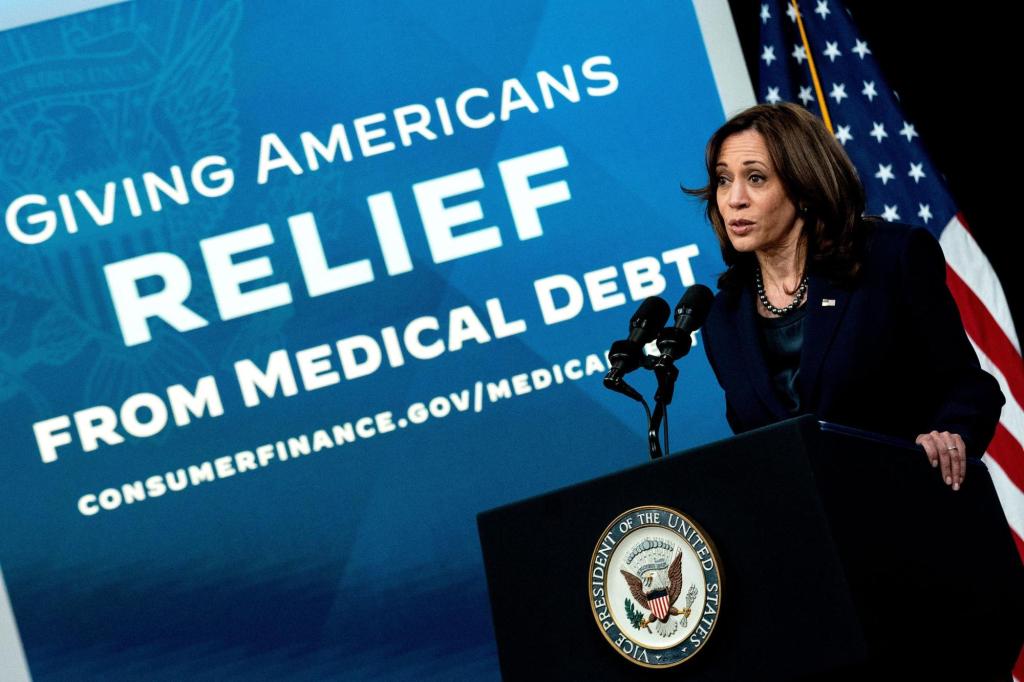
States Step Up to Tackle Medical Debt as Federal Support Faces Uncertainty
By Noam N. Levey, KFF Health News
With the incoming administration of President-elect Donald Trump potentially scaling back federal initiatives aimed at alleviating medical debt, attention is turning to state governments to safeguard citizens unable to manage their healthcare expenses. Patient and consumer advocates are spearheading efforts to enact state-level protections against the burgeoning crisis of medical debt.
Eva Stahl, public policy director at Undue Medical Debt, emphasized the shift in strategy: “The election simply shifts our focus. States are going to be the epicenter of policy change to mitigate the harms of medical debt.”
While states are exploring new avenues to mitigate the impact of medical expenses, the Trump administration’s anticipated rollback of federal aids could endanger recent progress in expanding health insurance access and affordability.
Advocates are urging state legislatures to adopt measures that prevent medical bills from affecting credit scores, a step that could significantly improve individuals’ financial stability. Additional proposals include tighter regulations on medical credit cards and financial products that often leave patients burdened with high-interest rates.
Elisabeth Benjamin from the Community Service Society of New York underscores the potential of state actions: “There’s an enormous amount that states can do. Look at what’s happened here.” New York has led initiatives to curb hospital debt collection practices and enhance financial aid for patients, garnering bipartisan support in the process.
States including Arizona, California, and Colorado have also implemented measures to protect consumers from medical debt, often with backing from both sides of the political aisle.
The Biden administration has been a vital supporter of these state efforts. The Consumer Financial Protection Bureau (CFPB), under Biden’s leadership, has prioritized addressing medical debt issues, proposing regulations to exclude medical bills from credit reports. However, the fate of these efforts remains uncertain under Trump’s presidency, as he has yet to clarify his stance on the CFPB’s proposed rules.
Elon Musk, recently appointed by Trump to lead efforts in reducing government scope, has publicly criticized the CFPB, advocating its dissolution. “Delete CFPB,” Musk wrote on X.
Should the CFPB’s rules be rescinded, states like Colorado and New York might continue implementing their own credit reporting bans, with Massachusetts contemplating similar legislation.
April Kuehnhoff of the National Consumer Law Center anticipates more states will regulate medical credit card providers, aiming to protect patients from exorbitant interest rates.
States are also pushing hospitals to enhance their financial assistance programs, ensuring aid is more accessible to low- and middle-income patients. States such as California and Washington have set stronger standards to assist patients with unaffordable bills.
In Georgia, discussions are underway to increase hospital accountability for patient financial aid, a topic that resonates with both Republican and Democratic lawmakers. Liz Coyle, executive director of Georgia Watch, noted, “When we talk about hospitals putting profits over patients, we get lots of nodding in the legislature from Democrats and Republicans.”
Despite these efforts, there is concern that potential federal funding cuts for health insurance programs could undermine state initiatives. Proposed rollbacks on subsidies provided under the Affordable Care Act by the Trump administration could lead to increased premiums, impacting affordability for many Americans.
Jessica Altman of Covered California cautioned that federal cuts could jeopardize state-level programs aimed at reducing patient costs and medical debt. “States like California that have invested in critical affordable programs for our residents will face tough decisions,” she said.
©2024 KFF Health News. Distributed by Tribune Content Agency, LLC.
Originally Published:






